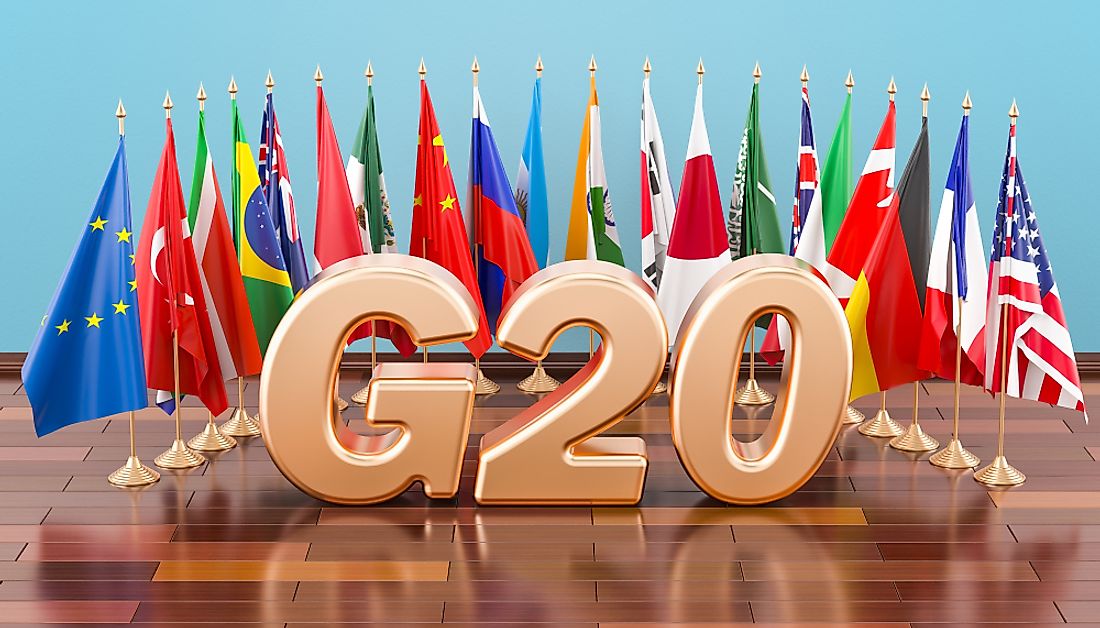1. Demystifying G20: What You Need to Know About this Global Powerhouse?
Stay tuned to G20 summits for insights into the world's economic direction, as these meetings often lead to significant global developments.
2. Unlocking the Secrets: The Fascinating Story of How G20 Came to Be
The G20, or Group of Twenty, found its roots in the formation of the G7. Initially, the G7, comprising the world's seven major advanced economies - the United States, Canada, the United Kingdom, France, Germany, Italy, and Japan - came into existence in the 1970s. It was established to facilitate discussions on global economic stability and cooperation among these powerful nations.
3. Who are the member countries of the G20, and what criteria determine their inclusion?
The G20 is a dynamic international forum comprising 19 individual countries and the European Union. These influential member countries include
- Argentina
- Australia
- Brazil
- Canada
- China
- France
- Germany
- India
- Indonesia
- Italy
- Japan
- Mexico
- Russia
- Saudi Arabia
- South Africa
- South Korea
- Turkey
- The United Kingdom
- The United States.
- European Union
The selection of G20 members is based on specific criteria, primarily centered around their economic significance, global influence, and regional representation. These criteria aim to ensure a balanced and inclusive representation of nations on the global stage. Collectively, the G20 member countries account for a substantial share of the world's economic output (GDP) and population, making them key players in shaping global economic policies, financial stability, and addressing pressing international challenges.
The G20's diverse composition acknowledges the evolving nature of the global economy and the need for a platform where a wide range of nations can collaborate to tackle complex issues collaboratively. This inclusivity makes the G20 a crucial forum for fostering international cooperation and ensuring that global decision-making considers the perspectives of a broad spectrum of countries.
4. What is the main purpose and mission of the G20?
The primary purpose and mission of the G20 is to serve as a pivotal international forum for addressing pressing global economic challenges and fostering cooperation among its member countries. The G20's main goals include:
- Economic Stability: Ensuring global economic stability and growth by coordinating policies, especially in times of financial crises.
- Financial Regulation: Enhancing financial regulation and oversight to prevent economic disruptions and systemic risks.
- Sustainable Development: Promoting sustainable development by addressing issues like poverty reduction, inequality, and environmental sustainability.
- Trade and Investment: Encouraging open and fair international trade and investment practices.
- Global Governance: Facilitating discussions on global governance issues, such as climate change, pandemics, and digitalization.
- Development Assistance: Encouraging assistance to developing nations and coordinating efforts to achieve global development goals.
The G20's mission underscores the importance of international cooperation in an interconnected world, acknowledging that many challenges transcend national borders and require collective action. Its influence on global economic policies and its commitment to addressing critical issues have solidified its role as a vital platform for shaping the future of our interconnected world.
5. Unveiling the Key Moments: What Really Went Down at the Latest G20 Summit?
The theme of the summit was "Vasudhaiva Kutumbakam", or "One Earth · One Family · One Future", derived from the Maha Upanishad. The theme reflected India's vision of a more inclusive, sustainable, and resilient world, where all nations and peoples can coexist in harmony and prosperity.
The summit focused on four key pillars:
- Global Recovery
- Sustainable Development
- Digital Transformation
- Global Governance
Under these pillars, the leaders discussed various issues such as climate change, health, trade, infrastructure, innovation, terrorism, and reform of multilateral institutions.
Some of the major outcomes of the summit were:
- The adoption of the New Delhi Declaration, which reaffirmed the leaders' commitment to work together to overcome the COVID-19 pandemic and its socio-economic impacts, and to build back a better for a greener and more equitable future.
- The launch of the G20 Action Plan on Climate Change, which outlined concrete actions to enhance climate ambition and cooperation, such as phasing out inefficient fossil fuel subsidies, accelerating clean energy transitions, mobilizing climate finance, and supporting adaptation and resilience.
- The endorsement of the G20 Framework on Health Security, which aimed to strengthen global preparedness and response to health emergencies, such as enhancing surveillance and early warning systems, ensuring equitable access to vaccines and therapeutics, and promoting universal health coverage.
- The establishment of the G20 Infrastructure Hub, which aimed to facilitate quality infrastructure investment in developing countries, especially in Africa, by providing a platform for knowledge sharing, project preparation, financing, and implementation.
- The approval of the G20 Digital Compact, which aimed to foster digital inclusion and innovation, such as bridging the digital divide, promoting digital literacy and skills, enhancing cybersecurity and data protection, and supporting digital entrepreneurship.
- The initiation of the G20 Dialogue on Multilateralism, which aimed to revitalize and reform the multilateral system, such as strengthening the role and effectiveness of the United Nations, enhancing the representation and voice of emerging and developing economies, and addressing global governance gaps.
To get latest updates Join our channel: Join channel now (<--click to join)
Credits:
1. List of G20 Members - WorldAtlas
4. Image 4
5. G20





👍👍
ReplyDeleteReally very informative and all of my questions on G20 are now clear
ReplyDeleteThanks
Good
ReplyDeleteWow
ReplyDeleteVery informative
ReplyDelete